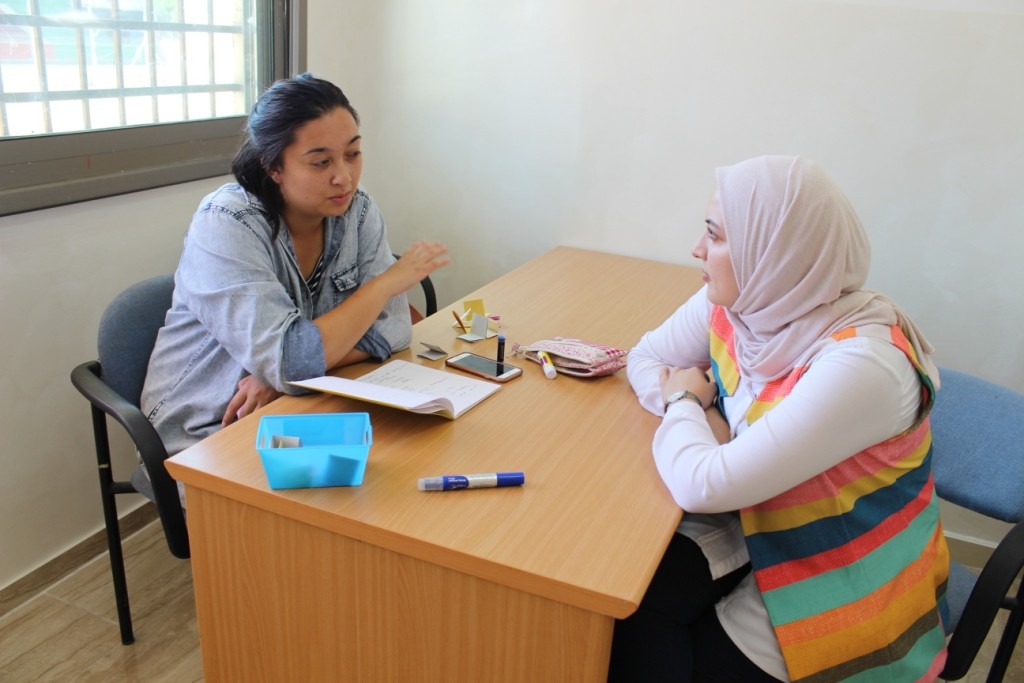 Why Arabic Has Made My Life in Palestine Easier: “My name is Cynthia and I am an American undergraduate student participating in the Teach English, Study Arabic program at the Excellence Center. One of the main reasons that I came to study at the Excellence Center was because I study Arabic in school and I wanted to increase my proficiency in the language. Many of the other interns at the Excellence Center are like me: they study political science, Middle Eastern studies, or international relations, along with the Arabic language. However, there are many interns who have no previous experience with the language, and while the two groups of people have very different experiences, they’re both valuable. I personally think that knowing some Arabic was vital in optimizing my experience in Hebron, and my life would have been very different without it.
Why Arabic Has Made My Life in Palestine Easier: “My name is Cynthia and I am an American undergraduate student participating in the Teach English, Study Arabic program at the Excellence Center. One of the main reasons that I came to study at the Excellence Center was because I study Arabic in school and I wanted to increase my proficiency in the language. Many of the other interns at the Excellence Center are like me: they study political science, Middle Eastern studies, or international relations, along with the Arabic language. However, there are many interns who have no previous experience with the language, and while the two groups of people have very different experiences, they’re both valuable. I personally think that knowing some Arabic was vital in optimizing my experience in Hebron, and my life would have been very different without it.
First, Arabic is useful in making the little things in day-to-day life much easier. I can ask in Arabic about how to get to the right bus stop, or order a hummus and Turkish salad easily without anything being lost in translation or cross-lingual communication. I can understand all the directions that I get from people without a problem, and I’m not thrown off by the occasional Arabic word thrown into a sentence, because I know what it means. When struggling with dealing with a new city and a different culture, having a basic understanding of the Arabic language was important for me in adjusting from America to Hebron.
Secondly, as a volunteer in the Teach English, Speak Arabic program, knowing words in Arabic has been very useful in teaching English in the classroom. Every day, I travel to a village outside of Hebron to teach beginning level English classes without a native Palestinian teacher from the Excellence Center, meaning that the students rely almost exclusively on us three non-native Arabic speakers for their English education. While teaching, I can confirm the meaning of vocab words or grammar concepts in Arabic to make sure that the students understand. I can tell them that class is over if they don’t quite understand us when we’re telling them that they can go because we have finished the lesson. And I can converse with my students to a higher degree than would be possible otherwise, using both English and Arabic to communicate thoughts and ideas.
Lastly, Arabic has been extremely helpful in living with a host family. While we could manage without it, Arabic makes living with my family much easier and smoother. My host mother, while she understands English, cannot speak it, and so she uses Arabic to tell me how to use the shower, where the dishes go, and when it is all right for me to go to bed. There would be a lot more confusion for the both of us, and anxiety on my part, if I didn’t have a basic understanding of Arabic. I can tell the members of my host family when I am hungry and ask if it’s ok to go out with friends later that night.
In conclusion, I personally have found knowing Arabic to be an extremely important tool in making my transition from life in America to life in Hebron much more comfortable. However, many other interns at the Excellence Center speak little to no Arabic and do just as fine. It depends on how timid and easily embarrassed you are, and how much you are willing to stand out”.


